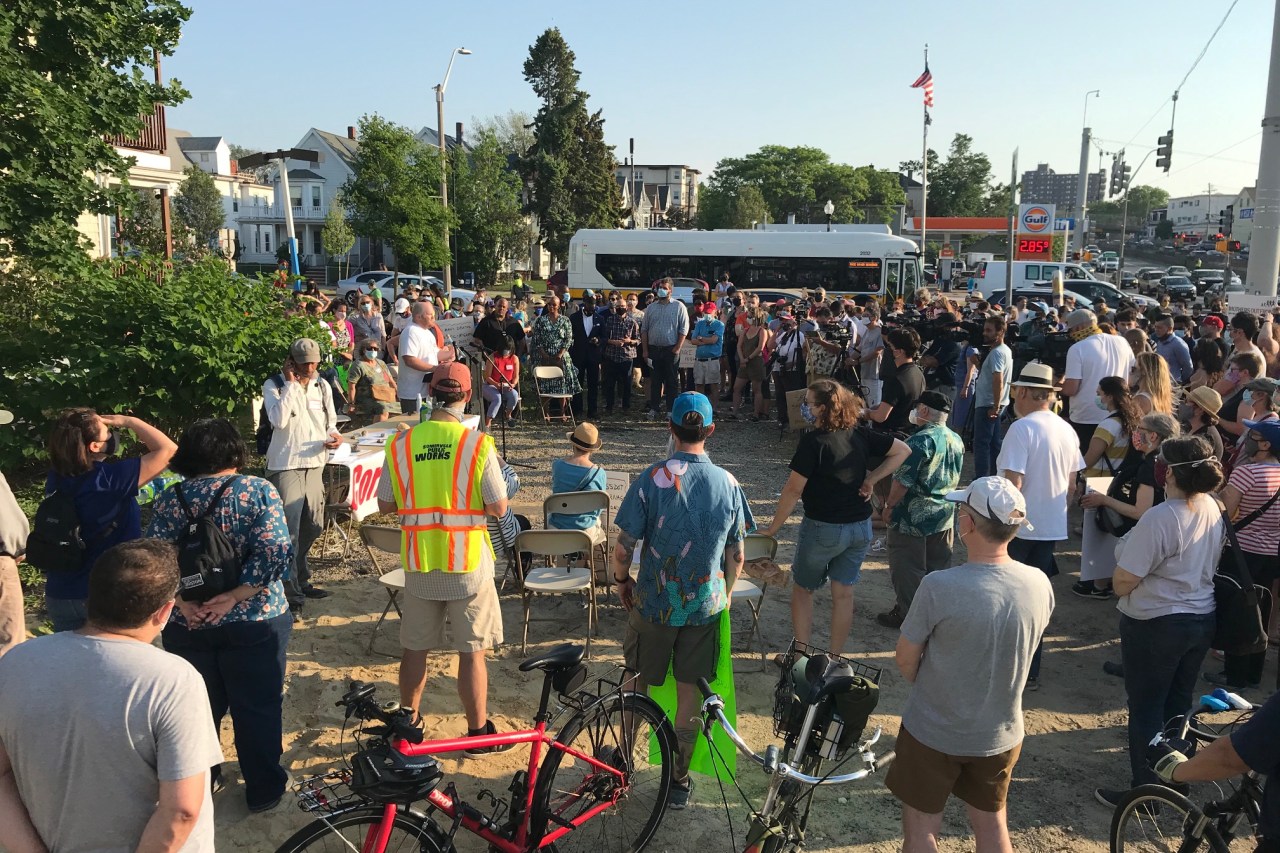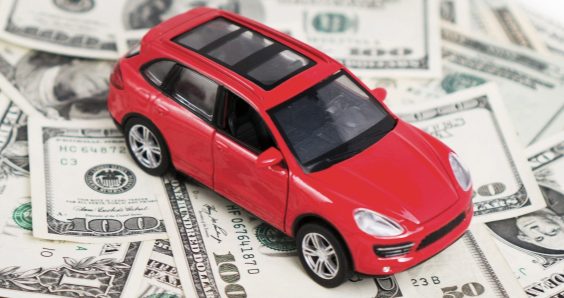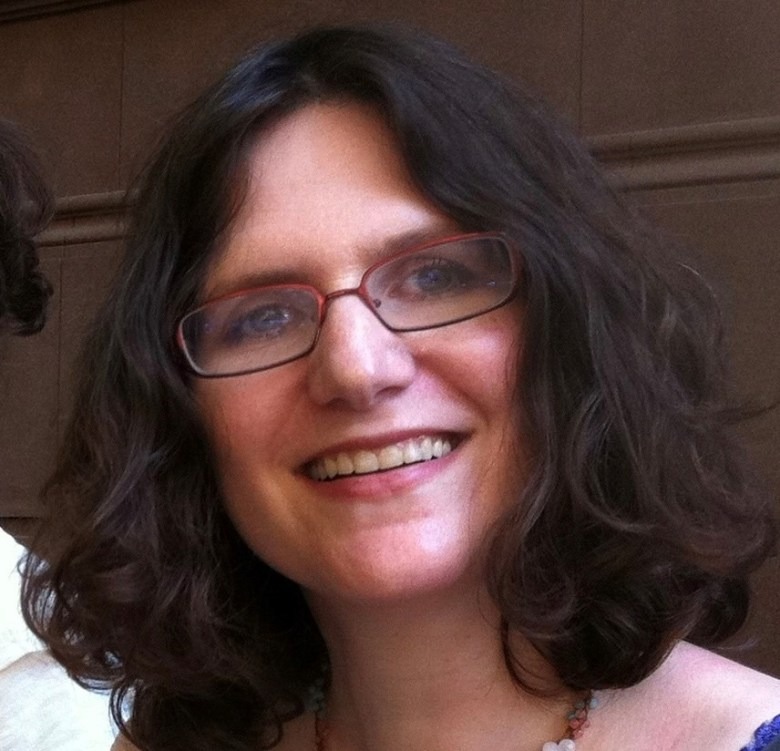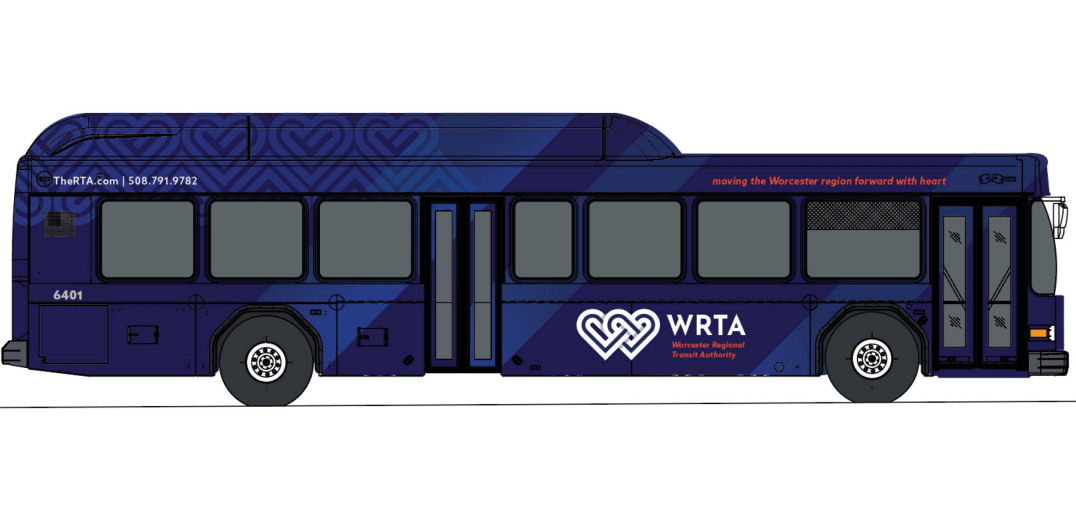I was on the phone with a friend the other day and she was reflecting on things feeling a little too calm for her liking. “It feels like no one is taking this seriously,” she said.
We’re currently seeing billionaires trying to manipulate the landscape in which we learn information and connect with each other into virtual landfills teeming with misinformation, trolls, and trash, while also uprooting thousands of government workers who support this country’s basic functions, domestically and abroad.
Corporations and institutions are cowardly bending the knee to legitimize all of this to not be next on the chopping block of federal funding or other retaliatory measures. It is an inescapable “flooding the zone” that is overwhelming and burning people out, causing a lot of confusion and distrust and putting people at risk.
Despite these challenges, people continue to step up, organize, and make their voices heard.
Now, more than ever, we need to see each other, know our neighbors, resist isolating ourselves from one another, and build a bigger tent that includes many more of us with similar – but maybe not identical – goals. Join organizations, show up to meetings, take the conversations and community both on and offline. 2025 is the year of the local.
It’s important to recognize and uplift peoples’ different approaches to taking action, as there is no one right way and people have their reasons for why they approach getting involved in the ways that they do. I am friends with people in the camp of working in politics and policy and changing from within, as well as people who want to work outside the system and tap into the power of organizing within their community. Thankfully, they all realize that this isn’t a moment to ignore or not engage with, as our livelihoods depend on it.

I have oscillated between both schools of thought in organizing throughout my personal and professional life – I have seen the power of the people and the power of policy at work. In many cases, the community works faster than the government, and in others, politics and who holds the power of the pen does matter.
At this point, I am sitting (and struggling in light of the governmental response to some truly unconstitutional and unpopular moves at the hands of, well, the government) with my shifting worldview to a place where I find that the two might need each other sometimes to keep this rickety train on track towards a common good.
That said, I have gotten engaged in my community in a couple different ways in the last few years, and think it’s worth sharing what has felt impactful to me. There are lots of different ways to make a difference; this is not a one-size-fits-all guide, but mix and match and explore what feels right.
Run for Something
A lot of political impact and some of the lowest levels of engagement both lie in the local sphere. In this space, you can directly influence local policies and decisions, represent your community’s interests, collaborate with the elected officials, all to work on specific policy issues like housing, disability advocacy, or historical preservation.
A few years ago, I joined my city’s Human Rights and Fair Housing Commission. I saw that there was a vacancy for the City Council’s Appointed Member slot, so I took a chance and applied. I went through an application process, and will never forget the feeling watching the city council’s subcommittee on local appointees talking about my candidacy for the spot.
I look back fondly on my four-year stint on the commission, managing caseloads of issues pertaining to my neighbors’ housing and human rights concerns, always learning and doing what I could to advance values that I believe in, that everyone deserves to have and retain their human rights, and that they deserve a fair opportunity to gain and sustain a roof over their heads.
To see what kinds of opportunities are available where you live, visit your city or town’s website and search for board and commission volunteer opportunities. Alternatively, call your city or town clerk and ask if there are any vacancies for local boards.
Alternatively, you can run for office. Many local races go uncontested, and others – like joining a local Town Meeting – have a relatively easy threshold for winning.
If you’re looking for a bigger challenge – and if you’re frustrated with our state legislature’s lack of transparency and lack of urgency in the face of big challenges – you could also challenge one of our incumbent state representatives or senators.
Incumbent lawmakers are usually backed by a lot of money, but the mere act of challenging them and giving voters a choice for a change will give you a chance to hold them more accountable to the promises they make, and give you an opportunity to influence their positions more directly.
If you’re considering running for any kind of local office, runforsomething.net is a great resource to get started.
Organize, Organize, Organize
Mutual aid networks are grassroots organizations that provide support and resources to community members that need it. One of the central pillars of mutual aid is solidarity as opposed to charity, uplifting reciprocal support.
During the pandemic, there was a proliferation of community fridges where neighbors could share fresh food that otherwise might have been thrown away. Worcester, for instance, has four “Woo Fridges” where people can find fresh produce from farms, grocery stores, and restaurants.
Other mutual aid organizations aim to provide more generalized support to people in need – sharing winter clothing, for instance, or an emergency rent payment. These groups need resources to share, but more crucially, they also need organizers who can connect people with each other.
There are lots of other mutual aid organizations in various Massachusetts cities and towns – find one near you by searching for “mutual aid” and your city’s name.
Combining Efforts
Volunteering for a political campaign or a community advocacy group is a great way to combine direct action with political engagement, working on advocating for and identifying peoples’ rights in housing, climate, labor, influencing policy through grassroots organizing and advocacy.
Years ago, during the first go of this administration and at the end of my undergraduate studies, I was feeling a little lost and wandering, taking different paths to figure out what’s next. Something that was so pivotal to me was just taking the time to sit down and listen. City council meetings every Tuesday after work, school committee meetings every first Monday of the month; I made it a point and priority to show up and understand what was actually happening in my community.

It was information gathering, connecting with my neighbors, and advocacy training all in one. I heard students speak to how a gender neutral bathroom policy would change their wellbeing in school for the better. I saw teachers wear red in solidarity with their paraprofessionals advocating for them to have a living wage. I worked with community members on ideas for a new waterfront public space along the Mystic River, a future place where people can play, kayak, listen to music, break bread in the grass, and gather for shows.
While getting involved brought me a lot of hope and new information I might not have had otherwise, there is no easy, feel-good answer to the eternal question of “What can we do?”
I don’t know how to explain to you that you should care about other people, and there are no secret weapons that will throw cold water on this authoritarian and fascist dumpster fire or silence the dog whistles. However, by taking meaningful actions and working together—whether it's joining a local commission, participating in mutual aid, volunteering for a political campaign, or some other form of action that fits you best—we can collectively have a positive impact.
Our livelihoods depend on our engagement. We know that, and the people who don’t want us to realize that also know it. Together, we can make a difference, and remember, the days are long but the years are short. In my day-to-day, I want to specifically leverage my money and my labor wisely, join more community organizations and conversations, continue to connect with my representatives, and lean into how rest is resistance.
Do your research, find your plan, take it day-by-day, and push that ripple effect from the local, out. Let’s keep pushing forward, together.





